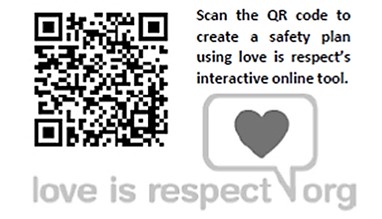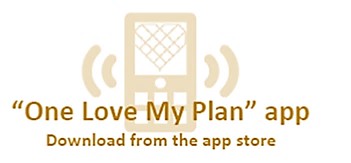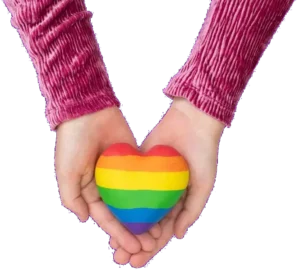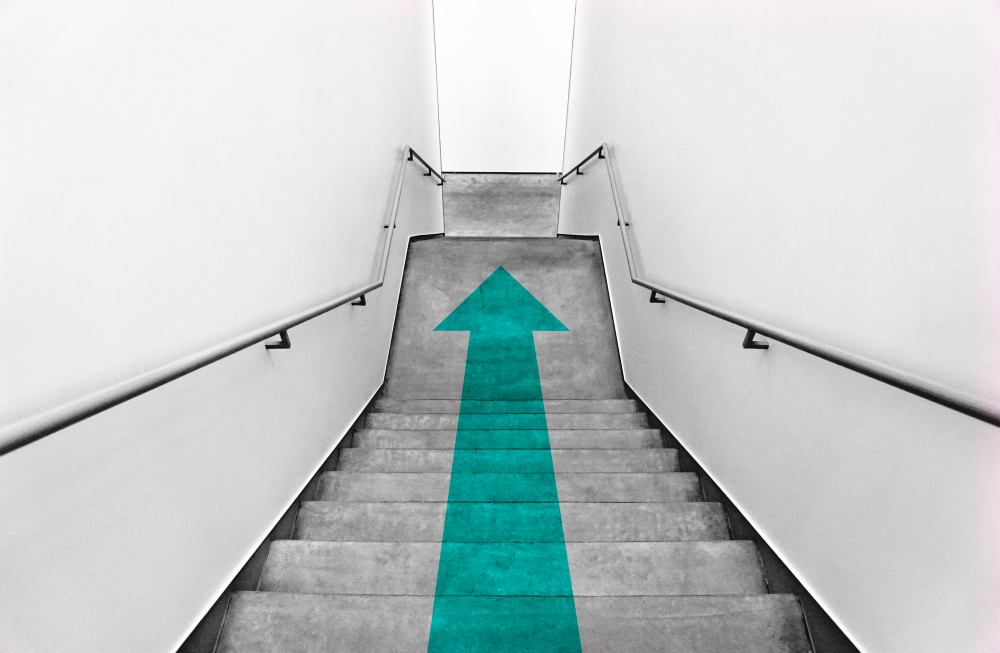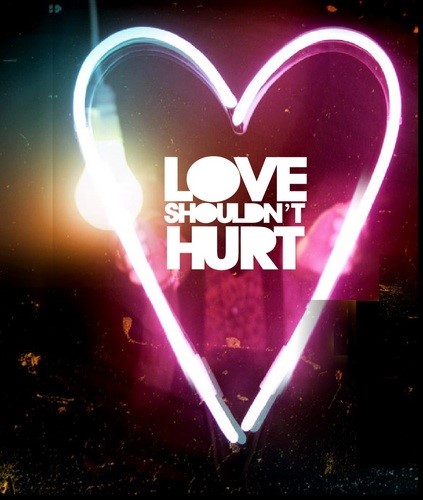
Is Your Relationship Healthy?
Does your dating partner treat you with respect?
(A partner can be someone you are seeing, dating or going out with.)
Here is a checklist to help you find out.
Count how many you can answer “yes,” to.
When you are done, read “Things to consider.”
- Does your partner respect your ideas?
- Can you be honest and clear with your partner?
- Do you know what you want out of your relationship?
- Does your partner listen to you?
- Is your relationship based on clear expectations?
- Do you enjoy being together?
- Does your partner respect your decisions?
- Do you feel good about your relationship most of the time?
- Do you and your partner work to find solutions that meet both of your needs?
- Do you feel like you can have your own opinion or an opinion that differs from your partner’s?
- Do you spend time away from your partner?
- Does your partner think highly of you?
Things to Consider
Look back at the items you said “yes” to. Does this look like a healthy relationship to you? Go back and re-read the questions you could not agree with. Do you think it is important to be able to answer “yes” to this question? Can a relationship be healthy without this quality? Can you discuss this checklist with your dating partner? Talk to an adult you trust if you have any questions.
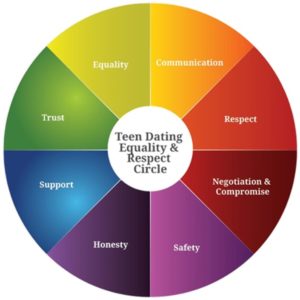
Abuse in a relationship is often cyclical. Easy-to-spot abusive behavior does not happen all the time. This can make abusive relationships difficult to recognize and even harder to get out of.
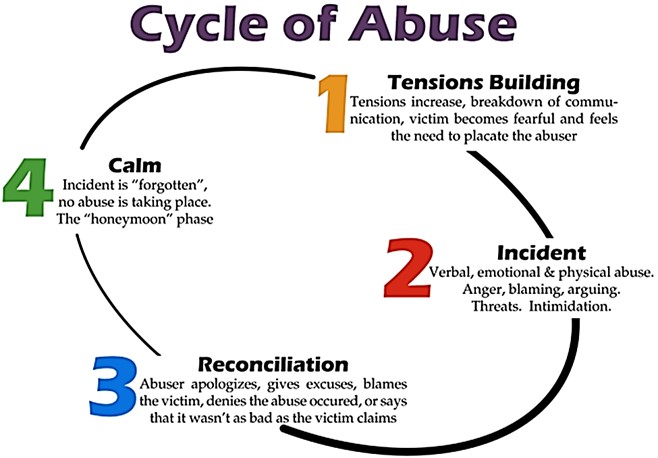
Dating abuse can happen to anyone and can occur during a relationship or after a relationship has changed or ended.
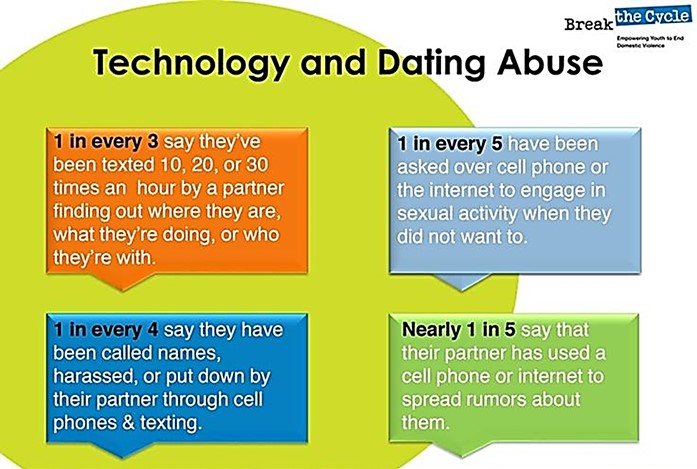
What is an Abusive Relationship?
An abusive relationship is a pattern of harmful behavior by one partner with the purpose of controlling the other partner in the relationship. Abusive behaviors can be damaging physically, emotionally and/or psychologically and can be acted out in different ways.
The Power and Control Wheel below gives some examples of abusive behavior in a relationship.
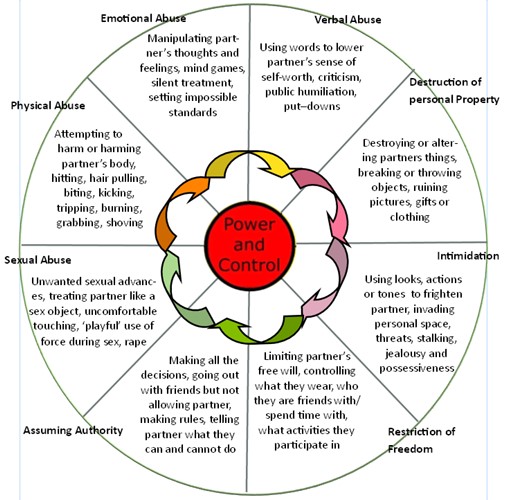
Helping a Friend Who is Experiencing Abuse
The most important way to help a friend is to BE THERE!
Even if …
- Your friend decides to stay in an unhealthy relationship.
- Your friend is being isolated from you by the abusive person.
- You are feeling unsure of how to help.
At some point, your friend will be ready to talk and will know you are there. What you can do:
- Support your friend, listen and believe what she/he tells you.
- Let your friend know she/he is not to blame for the abuse.
- Don’t judge your friend’s feeling of decisions, even if you don’t understand them.
- Learn all you can about dating and sexual violence and resources for help
- Think about how to keep yourself and your friend safe from further abuse.
- Encourage your friend to talk to a trusted adult – at school or outside of school/
- Help your friend get reconnected to other friends and activities.
- Get support for yourself; it’s hard to see a friend being hurt.
Helping a Friend Who is Being Abusive
It takes courage to get involved when you see a friend mistreating their dating partner, but your friend needs to know abusive behavior is not okay.
- Do let your friend know there is no excuse for abuse and violence. We are all responsible for our actions, even when we feel angry, jealous or insecure.
- Do talk to your friend about behavior that is abusive. Rather than telling them they are abusive, talk about their specific actions.
- Do encourage your friend to talk to a trusted adult. Let your friend know it takes courage to face up to problems.
- Don’t threaten your friend.
- Don’t just hope it won’t happen again. Abuse often gets worse over time.
- Don’t assume that abuse is only physical. Abuse can be verbal and emotional too. It can occur in-person or at a distance, for example through texts and social media.
- Don’t accept excuses. People who are behaving abusively often blame their actions on another person or the situation. For example, they may say they were “provoked” by someone they are abusing or blame the violence on drugs and alcohol.
Important safety information
Be sure to think about your safety and the safety of your friend’s dating partner. Your actions could put you or your friend’s dating partner at risk. You may need to ask an adult to help you. Get support for yourself. It can be difficult to know what to do when a friend is being controlling or abusive.

